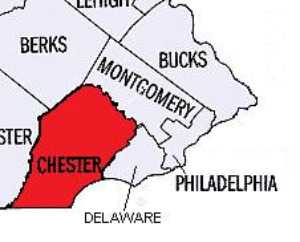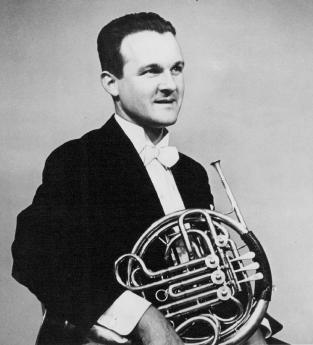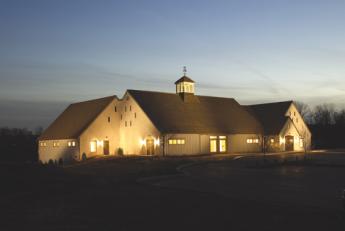Related Topics
Musical Philadelphia
Quakers never cared much for music, but the city has nonetheless musically flourished into international fame. At the same time, quarrels and internal battles have also been world class.
Curtis
To Cy Curtis, magazines were just vehicles for advertisers. In fact, his mags taught former farmers how to manage urban life, more or less accidentally creating a focus for American books, authors, politics and literature. The fall of his empire teaches the lesson that antitrust laws against vertical integration are probably unnecessary.
In Memoriam
Charles Peterson
Lewis B, Flinn, M.D.Wilton A. Doane,MD
Henry Cadbury
Martin Orne, MD, PhDGeorge W. Gowen, MD
Kenneth Gordon, MD
Mary Stuart Fisher, MDOrville P. Horwitz,MD
Lewis Harlow van Dusen, Jr.
Hobart Reiman, MD.
Lindley B. Reagan, M.D.
Allan v. Heely
Frederick Mason Jones, Jr.
Russell Roth,MD
George Willoughby
Earle B. Twitchell
Jonathan Evans Rhoads, Sr.
Garfield G. Duncan,MD
Hastings Griffin
Joseph P. Nicholson
Howard LewisAl DriscollHenry Bockus, MD
Mary Dunn
William H. Taylor
Abraham Rosenthal
Chester County, Pennsylvania
 Chester was an original county of Pennsylvania, one of the largest until Dauphin, Lancaster and Delaware counties were split off. Because the boundaries mainly did not follow rivers or other natural dividers, translating verbal boundaries into actual lines was highly contentious.
Chester was an original county of Pennsylvania, one of the largest until Dauphin, Lancaster and Delaware counties were split off. Because the boundaries mainly did not follow rivers or other natural dividers, translating verbal boundaries into actual lines was highly contentious.
Personal Reminiscences
One of the features of aging past ninety is accumulating many stories to tell. Perhaps fewer are left alive to challenge insignificant details.
Favorites - II
More favorites. Under construction.
Frederick Mason Jones,Jr. 1919-2009

|
| Mason Jones |
Classical music, however else it may be defined, strongly implies music played by an orchestra, or at least a group of musicians. It thus should be no surprise that the members of a famous orchestra bond together for most of their lifetimes in a sense far beyond the ordinary meaning of teamwork. If you are good, really, really good, you will come to the orchestra as a boy, devote every hour of every day to the orchestra, and step down only as a famous old man when you sense that reaction times have slowed. You sit together, travel together, rehearse together, and talk a language of detail which no one else can fully comprehend. Mistakes that one of you made forty years ago in performance, are still joked about because your colleagues know you still feel the pain of it, just as they share their own infrequent but no less fully remembered, moments of failure, largely unnoticed by the audience. When one of your colleagues dies, you turn out by the hundreds for the funeral. And when the hymns are sung, the organist is ignored, struggling to keep up with the people who really know music.
Mason Jones attended the Curtis Institute, itself a collection of prodigies, and was hired by Ormandy after a single audition; a year later he took the position of a first horn and kept it until he finally sensed he was passing his prime and laid it down. He was featured in the many recordings which defined the orchestra, and the Philadelphia Woodwind Quintet. He sometimes recorded as a soloist, but he thought of himself as an orchestral horn player, teaching orchestral horn at the Curtis to many generations of aspirants. He even conducted a little, usually in small groups. His comment on that was that it doesn't take much to be a conductor. "Just ask any orchestra player." At his funeral, it was related that the second horn once had two solo passages repeated within a larger piece, but when its time came there was silence. The second time around, it was played faultlessly. Afterward, Mason was asked what happened. "Fell asleep," he answered. And the second time? "I just played it for him."

|
| St. Peter's in the Great Valley |
Mason's funeral was held at St. Peter's in the Great Valley, illustrating that strange combination of artistic prodigies with modest beginnings, and the highest of high society, who mix together to create a great orchestra. A very well-groomed lady was heard to remark that this was where she had her coming-out party. St. Peters was founded as an Anglican mission church in 1700 in the Welsh Barony, built a log cabin church in 1728, replaced it with a little white jewel of a church in 1856, and added new buildings in the past few years to accommodate the population growth in the valley. The church has abundant well-tended land, sited on a hilltop surrounded by high hills, quite suitable for a college or private school campus. The homes in the area are a step beyond splendid, hidden in the wooded countryside. Unless you know precisely where to go, the tangle of country roads will defeat you. But the arterial of U.S. 202 is only a few miles away, and Philadelphia's silicon valley nestles beside the highway, inevitably closing in on the countryside. There will be horses and kennels and fox hunts in the region for another decade perhaps, but the new world is moving in on the old one, from all directions.
Originally published: Sunday, March 08, 2009; most-recently modified: Monday, May 20, 2019
| Posted by: V. H. Briggs | Nov 30, 2011 12:55 AM |
Mason
| Posted by: Frederick Mason Jones IV | Oct 30, 2011 10:46 PM |
| Posted by: Maurice Heckscher | Sep 1, 2010 6:41 PM |
| Posted by: FRANK BLISS | May 16, 2010 9:01 PM |
| Posted by: Bill Winkelman | Dec 7, 2009 10:55 PM |
You guys have a wonderful heritage up there in Philadelphia . My Dad was born in Worcester , Mass. All the Whitman’s , Hobart’s ,and Nash’s are from the family .
Thanks again , Hobart Whitman
| Posted by: Hobart Whitman | Apr 2, 2009 5:42 PM |